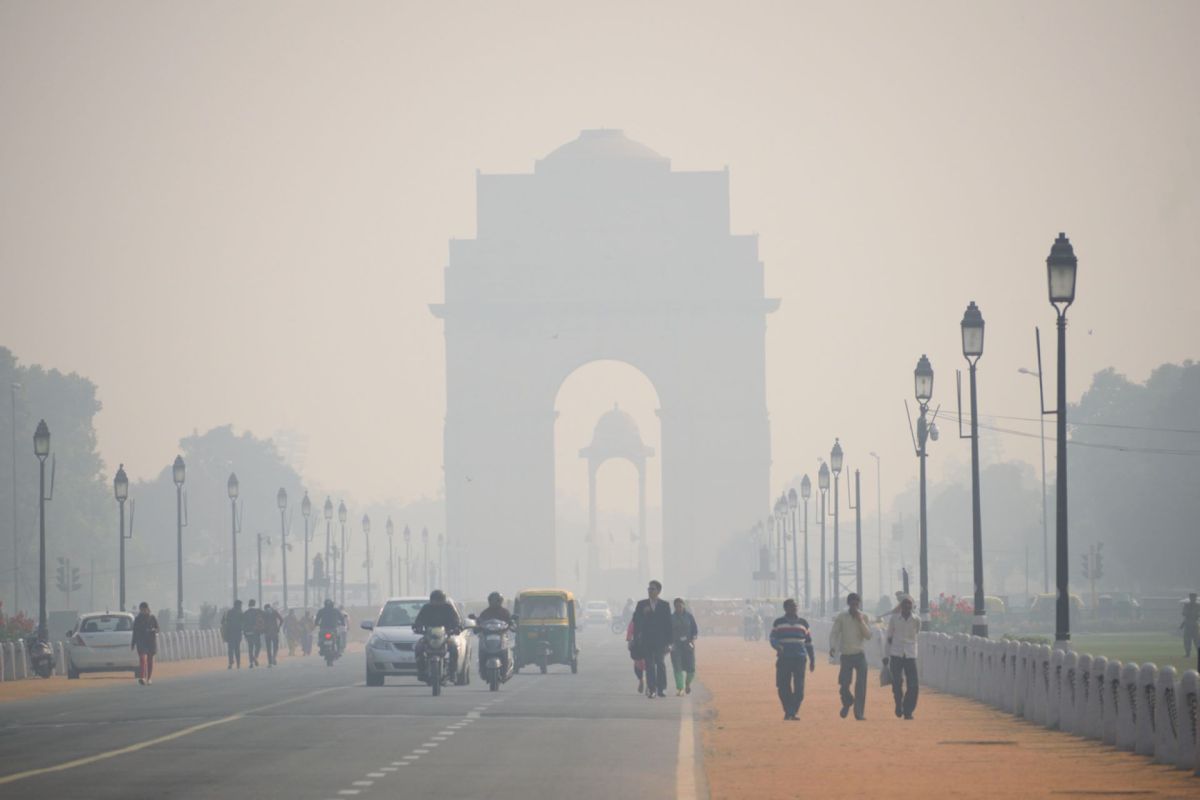New Delhi, the capital of India, is one of the world's most polluted cities. In an attempt to wash the city free of its pollution problem, local officials are considering a high-risk air-purification strategy.
According to a WIRED report, New Delhi may begin to implement a solution known as "cloud seeding" in an effort to aid the city's hazardous pollution levels.
Cloud seeding is a weather-modifying method that involves spraying chemicals into the sky to trigger rain that will "wash away" toxic air particles. The method has previously been used in China to combat pollution in its major cities, such as Beijing.
However, critics are concerned about the efficacy of cloud seeding in Delhi due to the city's drier climate. China's past success with cloud seeding is largely due to its significant cloud cover and humidity levels, which allow for the consistent production of artificial rain.
Although cloud seeding may help relieve New Delhi's pollution during favorable weather conditions, experts would prefer that the city focus on mitigating the root cause of its issues instead.
"It's not at all a good use of resources because it's not a solution, it's like a temporary relief," Avikal Somvanshi, a researcher at the New Delhi Center for Science and Environment, told WIRED.
A 2023 report by The Guardian states that New Delhi's air quality index reached a level 100 times higher than the limit declared healthy by the World Health Organization. Experts believe that Delhi's pollution is exacerbated by industrial plant pollution, waste burning, and pollutant-trapping winter smog.
The potential introduction of cloud seeding seemingly comes as a last-resort measure to control Delhi's pollution. Previous measures such as traffic restrictions, air filtration towers, and water-spraying trucks have proved ineffective in addressing the city's severe air pollution alone.
However, a solution is desperately needed to improve residents' quality of life, as many have been impacted by smog-related school and workplace closures. The fine particles in smog pose hazardous health risks for vulnerable populations, including respiratory issues, heart and lung diseases, and even premature deaths.
According to the Environmental Defense Fund, severe health conditions caused by air pollution are responsible for more than 6 million premature deaths annually.
Although cloud seeding is a step in the right direction for Delhi's environmental recovery, experts continue to advocate for people-focused pollution reduction strategies, namely an improved public transport system.
A recent press release from India's Ministry of Housing and Urban Affairs projects daily metro ridership to exceed 12.5 million in the next two years, signaling growing public interest in low-pollution transport.
Join our free newsletter for weekly updates on the coolest innovations improving our lives and saving our planet.









